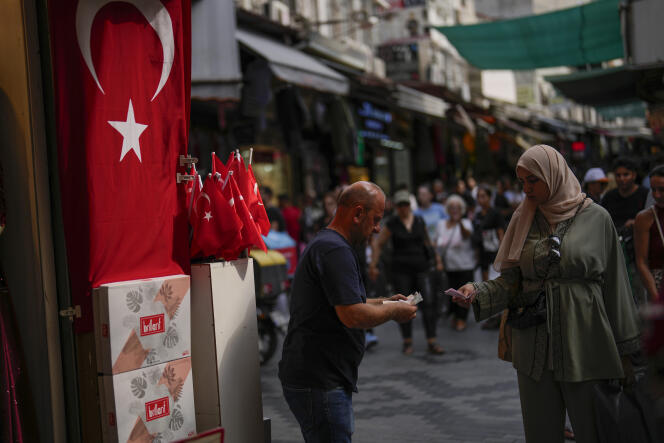


Not a day goes by without a price hike in Turkey. One day it's bread, the next it's onions or dish detergent. The latest was a glass of tea at the local café. In early September, it cost 20 Turkish lira, or €0.70. Before the summer, it was 15. Last year, 7.5.
In an article published in the German-language Swiss daily Neue Zürcher Zeitung, writer Ismail Güzelsoy asserted that Turks were suffering from inflation like a force of the elements, a kind of natural disaster that had become permanent. In fact, the daily change in price tags is a merciless revelation of consumer powerlessness. Restaurants and bars increasingly refrain from displaying their prices, whether on the menu or on their barcode links.
Some sites are trying to remedy this loss of bearings. There are the hashtags #enflasyon, #DolarTL and ZAM Haber on X (formerly Twitter), which point out all sorts of changes. Everything is included from milk and butter to scams, misleading price cuts by certain chains and government announcements. Like a photo of a 300-gram rib steak taken in 2019, which at the time cost 19.47 lira. Today, it's worth 120 lira. The account, which could be translated as "inflation news," is followed by over 600,000 subscribers.
On the government side, forecasts and announcements also vary from period to period. This summer, the Central Bank, which had already carried out limited interest rate hikes, surprised everyone by sharply raising its main key rate to 25% in June in order to curb inflation. On Wednesday, September 6, the government revised its forecasts upwards and now expects annual price rises of 65% by the end of the year before slowing to 33% next year. In its forecasts published a year ago, it was counting on increases of 24.9% and 13.8% respectively. This is a cruel reminder that, give or take two or three months, not once in the last 40 years has Turkish inflation recorded a rate below 10%.
"We're in a transition period," Economy Minister Mehmet Simsek was keen to stress in a cautious tone on Monday August 4. The official statistics, while already extremely high, are disputed by independent economists from the Inflation Research Group (ENAG), who put the year-on-year rise in consumer prices at 128%.
"I don't look at the figures anymore, it doesn't make any sense," said Umut Bey. "All I know is that money is tight, we're getting poorer and it's not going to get any better." A weary, aloof but not humorless man in his 50s, this entrepreneur based on the outskirts of the great Istanbul area runs a small furniture company with know-how and skills that can only be considered with thoughtful admiration. "Monsieur Umut," as he's known, won't give his real name, but he did give us a few tips to help him stay afloat in this tough Turkish economy. "Like everyone else, I survive by checking out the dollar and euro exchange rates on a daily basis. As soon as I have some lira, I exchange it and put the money in my account and keep some cash." All banks in Turkey offer the possibility of opening a foreign currency account.
You have 48.51% of this article left to read. The rest is for subscribers only.
